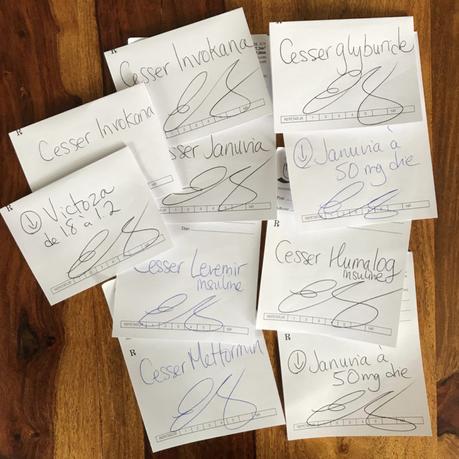
I opened my low-carb/keto clinic with Nurse Sylvie in February 2017, inside the medical clinic where I do my regular general practice. To get people to enroll, we gave a conference a few weeks before.
I don't know if you have ever been to Quebec (Canada) in the winter, but there is nothing about a dark freezing weeknight in January to encourage anyone to leave the comfort of their homes, fireplaces and hot chocolates, to come to a free conference. Still, some brave souls did come. And of those, we started up our first two cohorts.
There is so much to learn, as a person, when we start adopting a keto diet. We read, we do self-experiments, and we progress. As doctors, though, there is a lot more to learn, and it can feel overwhelming. It's enough to make anyone, even the most self-confident amongst us, decide to just not get started yet with patients.
One of the first things I learned as a doctor was what labs to ask for and follow, and why. What is normal, what is expected, and what can be totally and panicky abnormal, while being considered totally OK by other more experienced and cool low-carb practitioners.
Getting patients off medications
The second thing, perhaps, that I had to learn turned out to be my absolute favorite: deprescribing drugs. In North America, and I imagine in most parts of the world, we are trained really well on prescribing medication. Type 2 diabetes is an excellent example: we diagnose it, and then it's all about adding and combining different drugs, increasing doses, and then starting insulin, and then increasing doses indefinitely.
Those patients never get better. They only get sicker and fatter. They get complications, that we treat with still more drugs, and interventions. But, we do as we've been taught, right? We follow the guidelines, right? So we must be helping our patients, right?
The first time I deprescribed a T2DM medication, I felt electrified. My patient had low to normal blood sugar levels on a low-carb diet, after only a few weeks, had lost weight, and was feeling fantastic. Indeed, they were sitting in front of me and smiling.
I thought: "I could get used to this!" What I didn't know at the time was the addictive nature of having to deprescribe medication because a patient is doing too well.
Two weeks later, more follow-ups. More patients on low-carb doing too well, and needing medication to be stopped. I was really enjoying writing those deprescriptions. I used to look at them and feel proud, and happy. Indeed, I have kept my first original deprescriptions after faxing them, and I was considering framing them, and putting them up on one of my bedroom walls, to get inspired to keep going every morning when I wake up...
Ok. Let's just say that little project didn't go too well with hubby, who is totally non-medical, and just doesn't get the professional satisfaction that comes with those pieces of paper.
But I can tell you who gets it. Colleagues. I think all it takes is one success. One patient who suddenly comes to the office to tell their doctor that they are doing better. The doctor can't believe they are deprescribing a medication for a disease they were taught was "chronic and progressive". They feel encouraged to teach it to more patients. They are hooked.
I am a member of a secret FB group of Canadian physicians who have an interest in low-carb diets, for themselves and/or their patients. I have said on a number of occasions to other colleagues in that group: "You don't need to know everything about low-cab diets and keto diets to start yourself, and to start counseling your patients. You'll learn and get better as you and your patients progress. It doesn't have to be perfect, and it doesn't need to take much of your time. It doesn't need to be a setup with big cohorts and lots of logistics involved. Just get started. Make the jump. Start with one patient".
But then I had to add a word of caution: "You might fall in love all over again with your profession, and you might remember why you chose medicine in the first place. Deprescribing is addictive!"
You've been warned.
-
Dr. Èvelyne Bourdua-Roy

